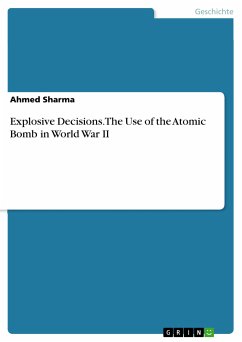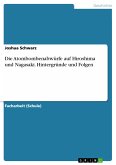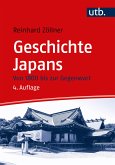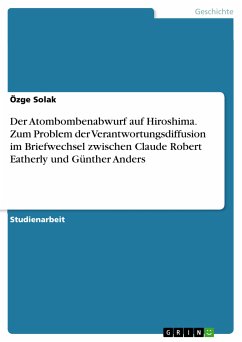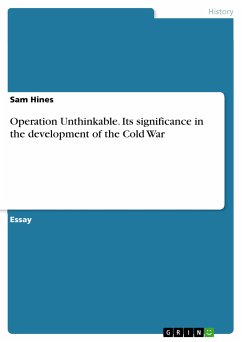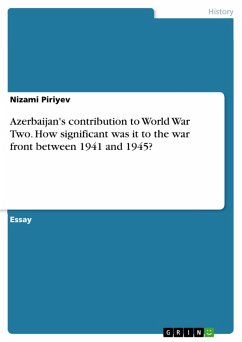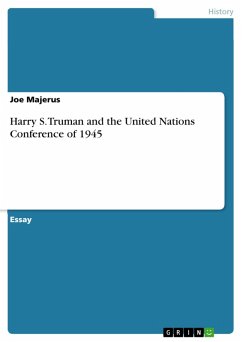Fachbuch aus dem Jahr 2014 im Fachbereich Geschichte - Asien, Stephen F. Austin State University, Sprache: Deutsch, Abstract: The bombings of Hiroshima and Nagasaki are taught in the school books as a tremendous victory for the United States because of how they essentially stood up to the Japanese and finally were able to end the war. However today, some U.S. Citizens criticize the government for the bombings and share a belief that the United States was wrong for the bombings and that alternative options should have been taken in order to end the war. And the empathetic stories of survivors in Hiroshima and Nagasaki only exacerbate the argument that what the U.S. Government did was a bit extreme. While one cannot turn back time and undo what the United States did, it can still be explored if there were indeed different opportunities for both Japan and the United States in order to at least prevent using the atomic bomb. From the United States' perspective there were many warnings sent to the Japanese urging them to surrender or face the consequences. However by using this secret weapon, the U.S. government had knowledge that the attack would bring about many casualties to not only Japanese military targets but also innocent civilians. This was an arduous decision indeed, but there is evidence (such as a letter from President Truman) that the U.S. had justifiable reasons for doing what they did. From the Japanese perspective, the ones who were not militarily involved in the war will say otherwise. This leaves current students who are interested in the study of World War II and historians wondering if the decision made was the correct way to go or if there was another way to end the war without having to produce so many casualties.
Dieser Download kann aus rechtlichen Gründen nur mit Rechnungsadresse in A, B, BG, CY, CZ, D, DK, EW, E, FIN, F, GR, HR, H, IRL, I, LT, L, LR, M, NL, PL, P, R, S, SLO, SK ausgeliefert werden.

